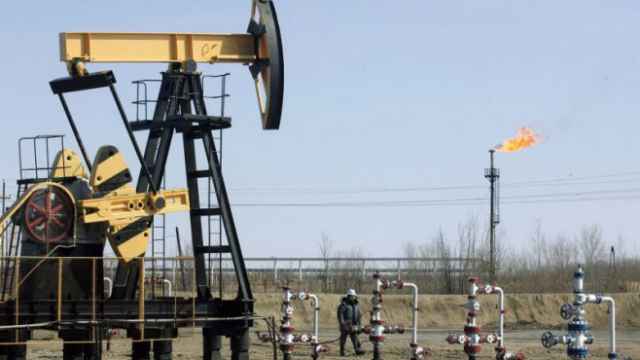VIENNA — Austria pledged on Wednesday to shelter companies and workers from the brunt of the economic fallout from Ukraine's political crisis, which officials said they feared could last some time.
Officials put no firm costs on steps agreed with employers, unions, farmers and industry to cushion the blow from Western sanctions on Russia for allegedly fomenting a separatist uprising in Ukraine, and from counter-sanctions by Moscow.
The government mostly drew on its current tool box of support measures, including subsidies for companies that have to cut staff working hours. It freed up an extra 2.5 million euros ($3.2 million) to promote exports and promised loan guarantees for businesses that have to restructure due to the crisis.
"There are a variety of instruments that can be developed further and we began with today's meeting because we fear that the crisis will not be over in a month," Social Democrat Chancellor Werner Faymann told reporters.
"We wish it were over this afternoon, but we expect negative developments in the medium term," added Faymann, who has praised sanctions in the face of grumbling from the business community.
Vice Chancellor Reinhold Mitterlehner of the conservative People's Party acknowledged the government had not come up with dramatic innovations but turned to "tried and true instruments."
Finance Minister Hans Joerg Schelling said earlier that relief measures would not scupper the budget as Austria faces a broader economic slowdown.
The Austrian economy grew by just 0.2 percent in the second quarter. The central bank has slashed its 2014 growth forecast to 0.9 percent from 1.6 percent, and other forecasters are set to follow suit.
Deficit Limits
Still, Schelling reaffirmed his commitment to respecting EU rules limiting members' budget deficits to 3 percent of gross domestic product. Austria's deficit is set to widen to 2.7 percent this year before narrowing again.
"We have to learn from the crisis that we didn't have a euro crisis but rather a debt crisis," said Schelling, who took office when his predecessor quit in a row over tax reform.
"We can expect that those countries calling for loosening the stability pacts must get the message that this doesn't solve the problem, but perhaps makes it worse," he said.
In Paris, Finance Minister Michel Sapin announced France would need until 2017 to bring its deficit down to 3 percent, breaking its promise to reach that goal by 2015.
Faymann said enough funds were on hand to help finance "short work" but they might have to be topped up later. Austria traditionally uses "short work" — staff at struggling companies work fewer hours but still get nearly full pay thanks to subsidies — to address sharp economic downturns.
Exports to Russia in the first half fell 12 percent to 1.55 billion euros, making it Austria's 11th-biggest export market and fourth-biggest outside the EU after the U.S., Switzerland and now China.
Russia accounts for less than 3 percent of Austria's foreign trade, and officials have estimated that 11,000 jobs could be at risk from the crisis over Russia, a crucial energy supplier.
Lenders Raiffeisen Bank International and UniCredit Bank Austria rely on Russia for profits.
Mitterlehner said crisis scenarios for helping banks exposed to Russia were "not in the foreground" at this stage.
A Message from The Moscow Times:
Dear readers,
We are facing unprecedented challenges. Russia's Prosecutor General's Office has designated The Moscow Times as an "undesirable" organization, criminalizing our work and putting our staff at risk of prosecution. This follows our earlier unjust labeling as a "foreign agent."
These actions are direct attempts to silence independent journalism in Russia. The authorities claim our work "discredits the decisions of the Russian leadership." We see things differently: we strive to provide accurate, unbiased reporting on Russia.
We, the journalists of The Moscow Times, refuse to be silenced. But to continue our work, we need your help.
Your support, no matter how small, makes a world of difference. If you can, please support us monthly starting from just $2. It's quick to set up, and every contribution makes a significant impact.
By supporting The Moscow Times, you're defending open, independent journalism in the face of repression. Thank you for standing with us.
Remind me later.





